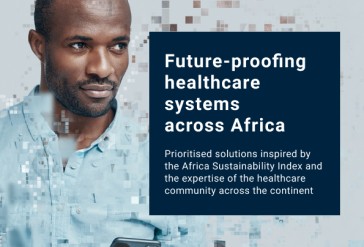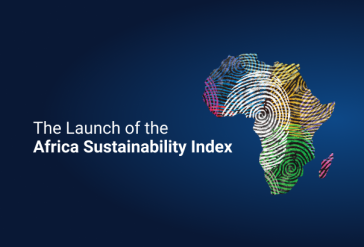Africa Sustainability Index
Compare and contrast key performance indicators from up to 18 African countries.
Key facts about Africa
There is a clear positive correlation between economic strength, political stability and the sustainability of a healthcare system. Findings show that countries with good access to services do not always have similar scores for quality of the health services provided, suggesting holistic policies that prioritize access and quality are needed to meaningfully impact Universal Health Coverage goals.
View this data11 of 18 countries are bunched together with score ranges between 40 and 50 in the Financing Vital Sign, though their performance elsewhere in the Index is more diverse. This pattern reveals the presence of similar financing challenges preventing most countries from focusing on healthcare sustainability. Although there is no universal solution, regional collaboration and exchange of best practices can help overcome some of these structural financial barriers.
View this dataThis Vital Sign has the lowest mean score, highlighting that there are many aspects of Innovation that need to be improved in African health systems. However, many best practices exist at the local level: from creating a future-looking policy and legal environment, to adopting new technologies and giving countries an opportunity to learn from one another.
View this dataAs African countries determine how to accelerate universal health coverage (UHC) goals and progress on the United Nations Sustainable Development Goals (SDGs) in the face of the COVID-19 pandemic, the results of the Index indicate that UHC can be achieved by looking not only to fix existing financial barriers to access, but at broader issues such as equity of access and wider societal and economic factors.
The results of the Financing Vital Sign suggest that there is little difference between some countries’ healthcare financing models. However, this similar approach does not yield similar results across all Vital Signs. While there is a clear positive correlation between economic strength, political stability and the sustainability of a healthcare system, there are strong variations in Access and Quality Vital which suggests that, beyond financial reforms, targeted policies in these areas could go a long way in achieving UHC. However, particular attention should be paid to existing inequities within the national health systems, which may not always be reflected by official statistics.
The results also show that North and East African countries tend to perform better overall, while Sub-Saharan countries lag behind on many Vital Signs, in particular on Access and Wider Factors, suggesting there are plenty of opportunities for the 18 countries analysed in the Index to learn from one another and collaborate together.
Another area of focus for improvement is within the Innovation Vital Sign, which has the lowest mean score of the six Vital Signs. Innovation was defined by the expert panel as ‘advancement, access and application of novel technology.’ South Africa is the top performing African nation in this Vital Sign, followed at some distance by Rwanda, Ethiopia, and Tanzania. Still, many best practices exist at the country-level, such as creating a future-looking policy and legal environments and adopting new technologies.
Start by selecting the region you would like to explore:
You can explore the region or select a specific location/s:

Launching the FutureProofing Healthcare Africa Sustainability Index
Can you contribute? If you’re a member of government, a patient group, a policy maker or have insights to share, talk to us...
























